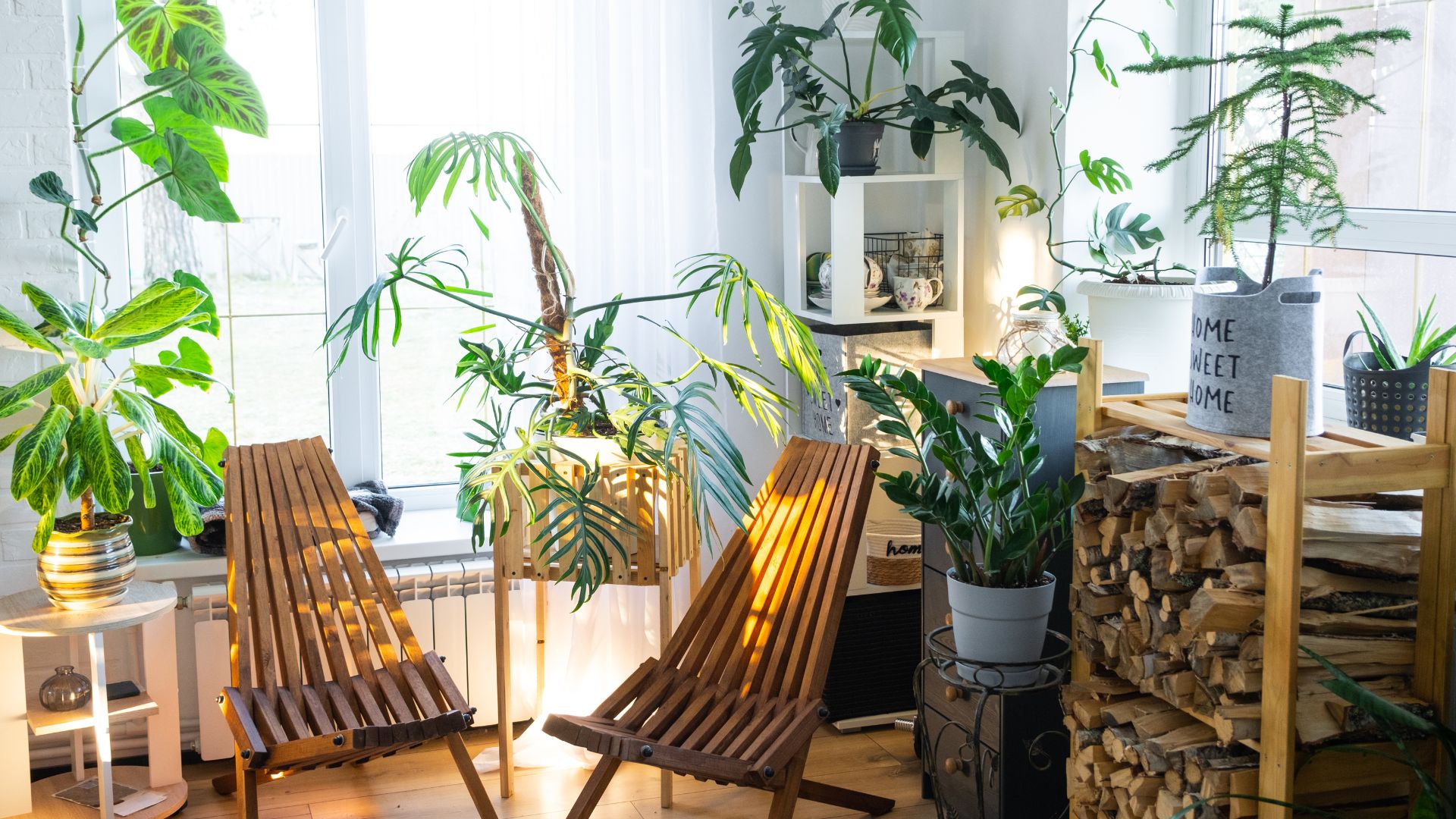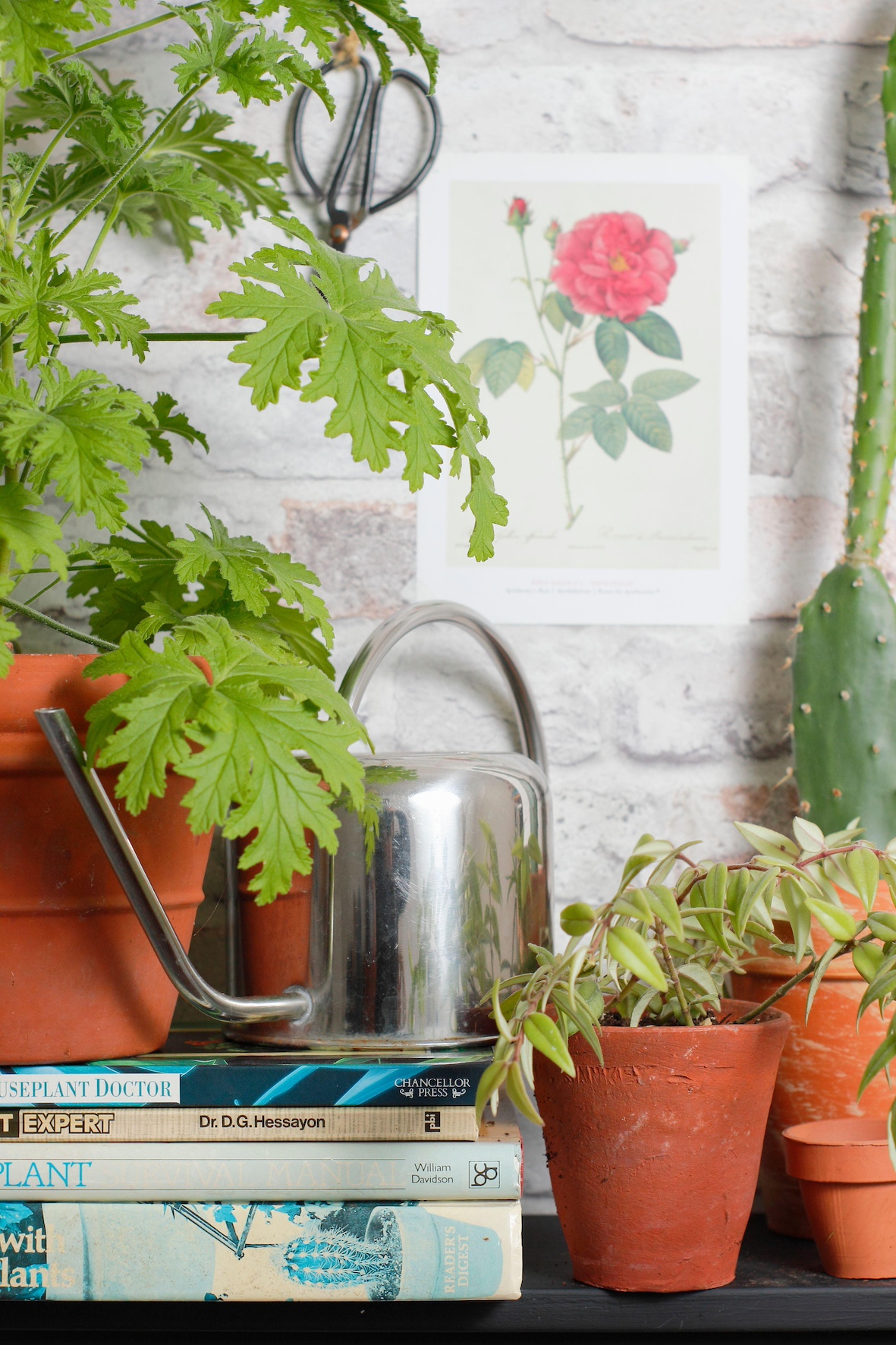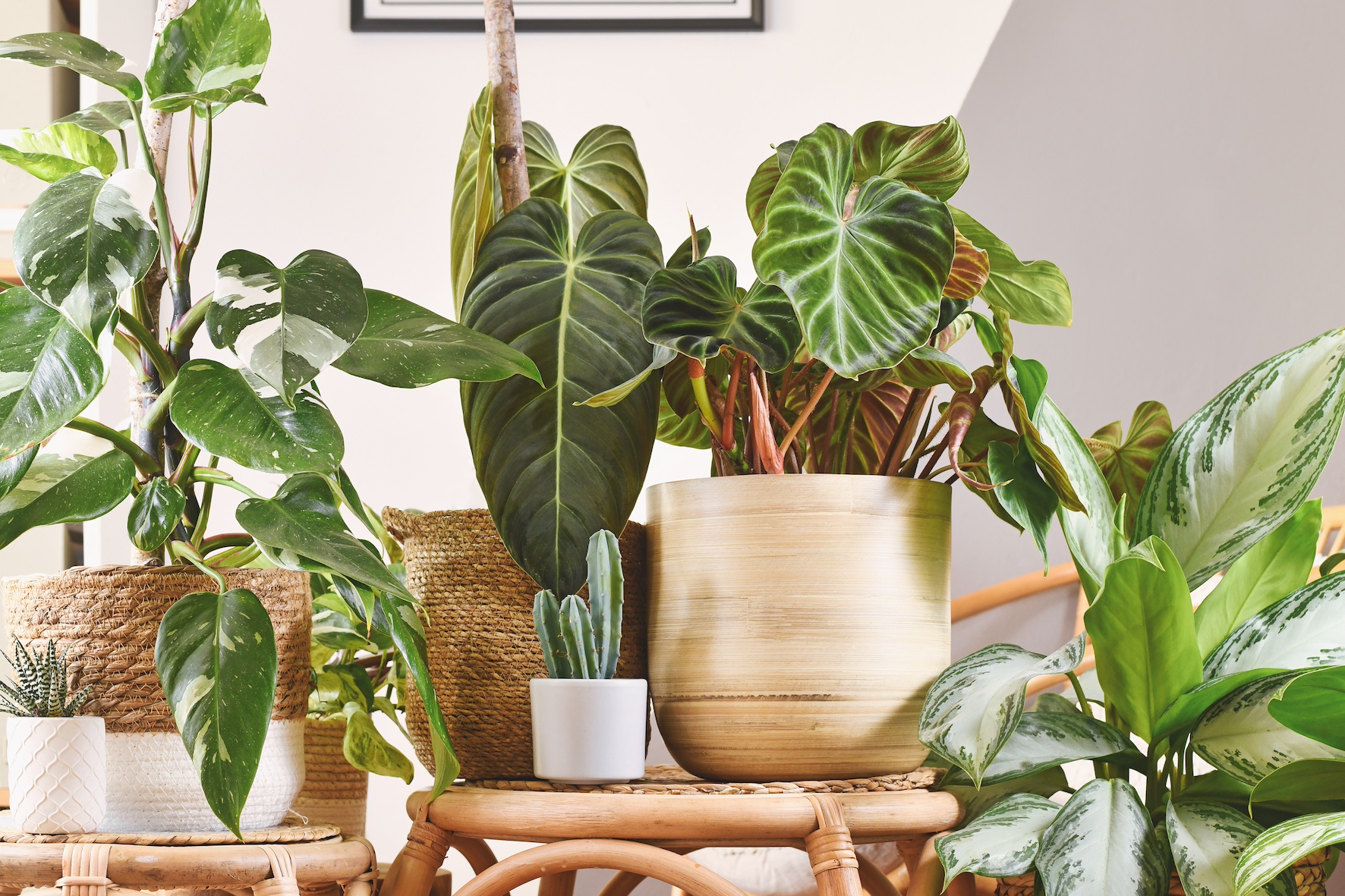Should You Use Hard or Soft Water on Plants? Here's What You Need to Know About Watering
Plant professionals offer simple solutions if your plants are suffering from a mineral overload

Although watering your precious houseplants might seem like an easy task, there's more to it than just filling a jug and watering. Sometimes plants get sick, and frequently it's our watering techniques that are the issue.
We often overwater or drown our houseplants, which is why it's important to know all about watering houseplants, including the type of water used and the needs of your plants. Finding a balance of hard water and soft water can sometimes be a factor, too.
So, how do you know whether watering indoor plants with soft or hard water is better, or even which type of water you have? Our experts can explain.
Hard Vs Soft Water
From how often you should water houseplants, to the type of water used, it's important to know the right watering techniques for healthy blooms. So, the question remains...should we be using hard or soft water?
"It’s hard to give a definitive answer because it depends on the amount of minerals in hard water and soft water," says Justin Hancock, horticulturalist and director, Costa Farms. "It can be a fine line between what’s enough and what’s too much, but either way, it is possible to remedy it."
Let's dive right into it, shall we?
How to Fix Hard Water for Plants

Want to save your wilting houseplant from hard water? First, identify the issue. An easy way to tell if you have hard water is to see limescale build-up on metal faucets, glass, and other surfaces. "Hard water usually contains calcium and/or magnesium compounds," explains Justin Hancock. "All plants need some calcium and magnesium. However, if they build up in the soil, they can potentially have a negative impact on houseplants that are sensitive to these two minerals."
The Livingetc newsletters are your inside source for what’s shaping interiors now - and what’s next. Discover trend forecasts, smart style ideas, and curated shopping inspiration that brings design to life. Subscribe today and stay ahead of the curve.
"In hard water areas, water from the faucet can leave chalky marks on the leaves of your plants," says William Davidson, author of Dr Houseplant.
So, how do you fix hard water for plants? William continues: "Plants like soft rainwater — unless you live in a highly polluted area — at room temperature. That said, houseplants generally don't mind water from the faucet, as long as it has not been through a water softener. Always let water stand for a while so that it can settle and reach room temperature."
Watering Plants With Soft Water

According to Johnson Water Conditioning Co, states with soft or very soft water include Washington, Oregon, New York, and North and South Carolina, to name a few. If you have soft water, you'll generally find that soaps and shampoos lather easily. However, your beautiful houseplants may not always love it.
"Softened water may contain low levels of sodium," says Justin. "Over time, if sodium levels accumulate in the soil, it can damage your houseplants. If you’re concerned about either hard or soft water for your houseplants, the easiest thing to do (in my opinion) is to 'dilute' your tap water with rainwater, or distilled water to lower the concentration of the minerals," continues Justin.
The expert says periodically flushing your houseplant’s soil with rainwater can also prevent the buildup of these minerals. He adds: "You’ll often see people recommending you only water plants with distilled water to prevent this, but it’s not necessary and it's usually expensive — especially if you have a lot of houseplants to water."
FAQs
How do I identity Hard Vs Soft water

Whether or not you have hard or soft water depends mostly on your geographical region (and those regions are not necessarily near each other).
The experts at Johnson Water Conditioning Co explain that there are generally four groups: hard water states, very hard water states, soft water states, and very soft water states. Illinois, Texas, Michigan, and Florida are some of the states that fall into the first two categories.
How to remove salt from softened water for plants
Softened water can be harmful to plants when used over a period of time, due to the high salt content in the water that can build up in the soil. A salt residue may also build up from synthetic fertilizers. If your plants are in terracotta pots, you may see this salt residue appear on the outside surface of the pots.
"To remove salt from softened water, you can use a reverse osmosis filter, which helps to removes sodium and other minerals," explains Paris Lalicata, plant expert, The Sill. "You can also mix softened water with rainwater or distilled water to dilute the amount of salt content when watering your houseplants."
Jacky Parker is a freelance lifestyle journalist and writer, producing a wide range of features for magazines and digital platforms. She has written for Livingetc and its sister titles, Homes & Gardens and Country Homes & Interiors for more than 15 years, both as a freelance contributor and as Acting Digital Editor and Acting Style Content Editor, regularly reporting on the latest interiors, gardens and wellness inspiration, speaking to experts in their respective fields, and discovering the best tips.
Jacky has also written for other publications, including Sunday Times Style, The Telegraph, Architectural Digest, House Beautiful, ELLE Decoration, Red, Grand Designs and more.